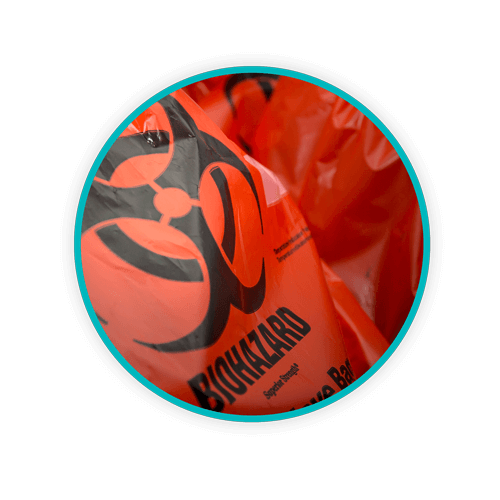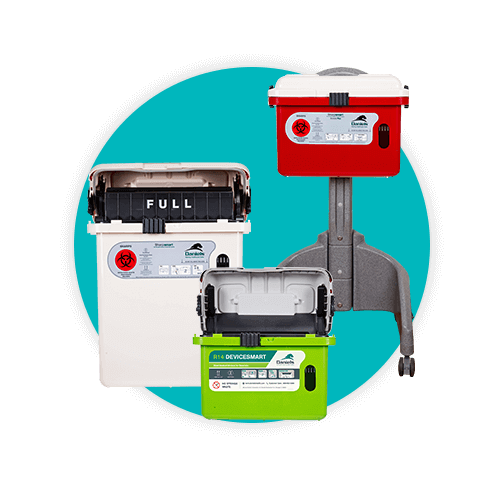Medical Waste Management is of clinical concern
We design all of our solutions to help your facility be safer, more efficient, more environmentally responsible and… more clinical!
Cardboard boxes simply don’t cut it in the clinical environment from a viewpoint of safety, contamination, hygiene or occupational risk. At Daniels we have collaborated with clinicians to design the safest (and most beautiful!) sharps, pharmaceutical, chemotherapy and medical waste containers in the United States. At Daniels we’re. focused not only on safety but on making things simple for our customers – simple quotes, simple contracts, and flexible volume and scheduling that reflects your needs. Whether for hospitals, dialysis centers or physicians offices, Daniels delivers a different approach that simply makes sense.
Does your sharps container pass the candy test?
If a piece of candy fell into an open sharps container…
Could a child’s hand reach in to get it?
A sharps container with a no-hands access safety tray is CRUCIAL, especially when situated in a patient environment. Daniels patented Sharpsmart tray achieves 100% hand-access restriction, even for tiny inquisitive hands!
Sharpsmart. World Leading Sharps Safety Technology
Peer reviewed in four independent studies, clinically proven to reduce needlestick Injuries by up to 87%, and relied on by healthcare facilities around the world, the Sharpsmart system is driven by a single objective – To Save Lives. Designed with 13 safety features, manufactured with needle-impenetrable plastic, a gravity balanced safety tray for risk-free sharps disposal, and a built-in overfill protection mechanism, the Daniels Sharpsmart is the most advanced sharps container system in the world.
Dramatically reduced infection transfer risk
Using a foot-pedal opening mechanism and bagless system means hand contact with the container is no longer required.
This no-touch alternative results in a dramatic reduction in the infection transfer risk that currently exists using standard medical waste containers. The Medismart reusable system ensures that once full, each container is removed from your premises, emptied, and then subjected to a rigorous 6-stage robotic wash and sanitization process that eliminates challenge organisms and proves a 106 Log reduction in bacterial load.
How We Serve You
Across 6 countries, Daniels has become a brand name synonymous with healthcare innovation and service
In 38 years Daniels have become experts in delivering solutions for the niche requirements of healthcare. Today over 125,000 services are fulfilled annually across the United States by Daniels owned and operated fleet. From small practices to large medical facilities, our scalable business model ensures that every customer receives:
- Timely scheduled services with clear transparent communication
- Minimum disruption to patient care
- Safety and Security underpinning all biohazardous waste handling practices
- A positive and friendly customer experience
- Cost-effective customized solutions that guarantee efficiencies and maximize savings



